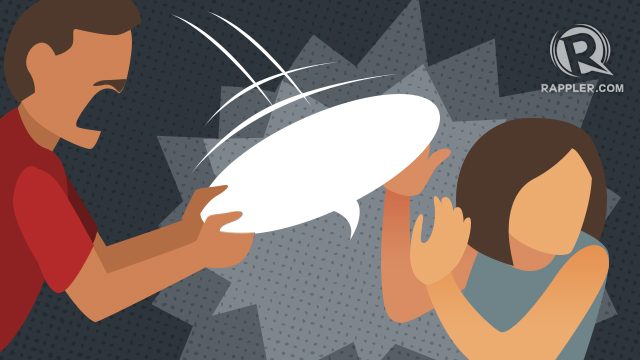SUMMARY
This is AI generated summarization, which may have errors. For context, always refer to the full article.

Social media was up at arms on May 3, after Philippine Senator Tito Sotto insulted a senator for being a single mother, suggesting she was just knocked up. Sotto dismissed it as a joke, but netizens made it clear they did not find his statement funny calling him “sexist” and “misogynist.”
Sotto, in reacting to the backlash, said it was just “street language” (a familiar defense in similar sexist offenses), and that “some people are overly sensitive.” He also said, “everybody in the hall, almost everybody laughed.”
While he apologized for offending people, his arguments are of course insensitive, and raise the question as to whether he understood his wrongdoing. But his third point, on those in the hall laughing, is something worth discussing.
After the incident, my initial reaction was not just to call out Sotto, but also those in the room who laughed at his joke. This is the precise culture after all, that breeds and normalizes misogynistic comments. The laughter in the room is a sign of acceptance, a permission, that jokes or comments like these are okay.
Shame Sotto but also shame those in the room who laughed. It’s that culture that permits misogynistic comments, which make it seem okay.
— Natashya Gutierrez (@natashya_g) May 3, 2017
Had nobody in the room laughed, perhaps Sotto may have been embarrassed or would’ve learned his lesson – and maybe will be more thoughtful and sensitive in the future.
This culture of misogyny is something that is encouraged every single day on social media.
On social networks, this sort of culture, or acceptance, comes in the form of likes or shares. Sexist comments which call women names, or slut-shame, or discuss their physical appearance, get hundreds of likes or shares. This is how this culture continues online. Sotto’s comment garnered much attention, but this backlash should be sustained on a daily basis on social media.
Coincidentally, the Sotto incident happened on World Press Freedom Day. The most common targets for these sexist attacks? Female journalists.
Harmful likes
Studies on online harassment have consistently shown that hate speech directed towards women are different from those received by men. Particularly, they are misogynistic, meant to intimidate women into silence.
When trolls attack women, what sticks out is the nature of the comments: deeply sexist, and targeted specifically at a woman’s gender. “I hope you get raped, you attention-seeking whore,” one Facebook commenter said to me. Another was more creative in his threat. “You deserve this,” he said, and attached an image of anal penetration. Still another was straight to the point: “Shut the slut up.”
Often, they are sexually-laden names – whore, cunt, a cock sucker. All terms that suggest women are beneath men, or can be dominated. They are meant to demean. Men, when they get attacked online, also get death or physical threats as women do, but are spared comments about their bodies, or their sexuality.
Most recently, our CEO Maria Ressa was misquoted as saying she received 90 rape threats per hour. Her actual quote was “An average of 90 hate messages an hour…. That’s what I dealt with for a month“ but trolls (who unsurprisingly did not take the time to watch the video and hear her actual quote) used it again in brutal sexist attacks.
“Who would be desperate enough to rape her?,” one asked, while another said, “Even if anyone were so drunk, no one would rape you.” As if rape were a compliment.
But what was even more bothersome was the amount of likes and replies comments like these got. Some may be bots, or paid trolls, but many are also real – even coming from the least expected sources.
These likes, which netizens may think are innocent, have the exact same effect as the laughter in that room when Sotto made his statement. Laughing, and likes, are the affirmation that keep this behavior, this culture going. They encourage and normalize misogyny, even rape, and tell the sexists that their thoughts are valid.
This sort of online vitriol targeted at female journalists has a goal: to intimidate. It aims to silence crucial voices of female journalists, which is a direct attack on media freedom. And this happens all the time, around the world.
Women journalists react differently to these attacks. Some have chosen to avoid social media or stay silent. Others change beats, decide to be less critical, or change their topics of coverage. But silencing female voices, means silencing half of society. It does not just narrow perspectives, it affects our democracies.
I salute all those who cried foul online, who called Sotto out for his behavior. It is crucial this awareness continues – that we defend women from misogynistic attacks, and civilize the conversation, even when we don’t agree with the views of the woman in question. Defend women, even if it’s as simple as not liking a sexist comment.
To be incredibly clear, female journalists don’t mind being questioned about our articles, or being challenged. By all means, hold us accountable, be critical of our work.
But keep our bodies and physical appearance out of the conversation. – Rappler.com
Add a comment
How does this make you feel?
There are no comments yet. Add your comment to start the conversation.